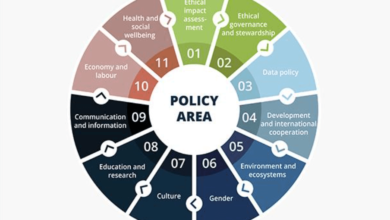How AI Code Assistants Are Revolutionizing Software Development in 2025

The software industry is witnessing a transformative shift in 2025, thanks to the rapid rise of AI code assistants. Tools like GitHub Copilot, Codeium, Tabnine, and Amazon CodeWhisperer are not just boosting developer productivity—they’re changing how we think about coding altogether.
This article explores how AI-powered tools are reshaping programming, why developers are embracing them, and what the future may hold.
💡 What Are AI Code Assistants?
AI code assistants are tools that help programmers write code faster and more accurately. These tools use advanced machine learning models (especially natural language processing or NLP) to:
Autocomplete code
Suggest functions or logic
Detect and fix bugs
Convert human language into working code
Recommend best practices and secure patterns
They integrate directly into IDEs like Visual Studio Code, JetBrains, or even web-based environments like Replit.
🚀 Why Developers Are Using AI Code Assistants in 2025
1. Faster Development Cycles
AI assistants help developers finish tasks in minutes that used to take hours. For example, writing boilerplate code or repetitive logic can now be done almost instantly with tools like GitHub Copilot.
2. Learning and Upskilling
New developers benefit hugely from these tools. By suggesting improvements and real-time code snippets, AI becomes a silent mentor—speeding up the learning process.
3. Fewer Bugs, More Quality
AI tools don’t just write code—they also flag potential bugs, detect security issues, and offer cleaner solutions, helping teams maintain high-quality codebases.
4. Support for Multiple Languages
Modern AI code assistants support Python, JavaScript, C++, Go, TypeScript, Rust, and dozens of other languages—making them versatile across domains.
🌍 Popular AI Code Assistants in 2025
| Tool | Key Features |
| GitHub Copilot (by OpenAI) | Best for autocomplete and multi-language support |
| Tabnine | Privacy-focused AI assistant for teams |
| Codeium | Real-time code completion with CLI tools |
| Amazon CodeWhisperer | Seamless AWS integration, ideal for cloud apps |
| Cursor | Copilot-enhanced IDE built around AI interaction |
⚖️ Benefits vs Limitations
✅ Benefits:
Speed up coding and testing
Help with documentation and comments
Enhance collaboration in team environments
⚠️ Limitations:
May introduce incorrect or insecure code
Over-reliance can reduce deep learning of concepts
Some tools raise privacy concerns with cloud-based code suggestions
🔮 What’s Next for AI and Coding?
As models become more context-aware, AI tools will evolve from “code assistants” to “code collaborators.” In the future, we may see tools that:
Automatically refactor legacy systems
Generate complete applications from written specs
Pair with project management tools to track sprint tasks
Improve accessibility for visually impaired developers
Already, companies are beginning to treat AI as a core part of DevOps pipelines—integrating AI for not just writing code, but testing, deployment, and monitoring.
🧠 Should Developers Worry About Job Loss?
Not really.
AI is not replacing developers—it’s upgrading them. Think of AI code assistants as power tools. A skilled developer using AI will outperform a developer who doesn’t. The focus is shifting from writing code to solving higher-level problems, designing scalable systems, and improving user experiences.
Final Thoughts
AI code assistants are more than a trend—they are shaping the future of software engineering. By accelerating development, improving code quality, and lowering the barrier to entry, they’re democratizing tech like never before.
Whether you’re a startup founder, a senior engineer, or a coding student—now is the time to embrace AI as your coding companion.




